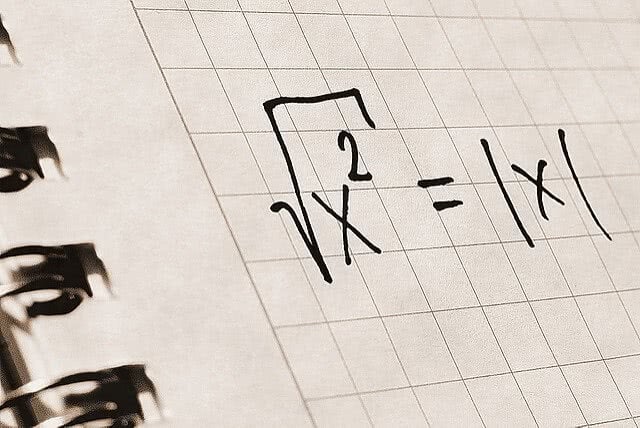
Flickr user Mariusz Kucharczyk
Even if math isn’t your best subject, knowing the types of math problems you’ll run into on the ACT or SAT can give you a huge boost. You can find what types of math you struggle on and focus on those before the test date. Here are the ones you’ll run into:
Algebra
Of course, algebra will be on the tests! On both the ACT and SAT, algebra takes up a significant portion of the test questions. Some types of questions you’ll see will be simplifying algebraic expressions, word problems, linear equations, terminology, fractions, functions, decimals, percents, and averages. The difficulties included are pre-algebra, elementary, and intermediate.
Geometry
Geometry and measurements are the next most common type of math questions on both the SAT and the ACT. 25% to 30% of the math section of the SAT will consist of these, while about 23 questions will be on the ACT. You’ll be tested on area, circumference, volume, Pythagorean theorem, triangles, slope, midpoint, points, graphing, and more. Both plane and coordinate geometry will be included.
Trigonometry
Trigonometry, on the other hand, is only on the ACT. With only four questions, it is a very minor part of the section. It includes sine, cosine, and tangent, graphing, and more. It will be mostly basic questions, but you should know how to tackle this area of math.
Numbers and Operations
Meanwhile, numbers and operations questions will only be on the SAT. This section will focus on rational numbers, integers, and word problems. About 20 to 25% of the test will feature these types of questions.
Data, Probability, and Statistics
There’s no maybe about this. Probability, as well as data and statistics, will be on the SAT. Mean, median, and mode are just the beginning, but interpreting data from tables and graphs will also be included.
How to Prepare
The most important way to prepare for the math section of the SAT or the ACT is to practice, study, practice, study, and practice. Taking the official practice exams (the PSAT and the PreACT) as well as taking practice tests at home can help you become better acquainted with the types of questions you’ll be asked when it comes to the real thing. If you’re stuck on a particular type of problem, make sure you’re dedicating yourself more to that aspect of math.
Also enlist the help of your friends, perhaps a teacher, and maybe even a tutor. If you’re struggling in this subject, try asking a teacher or a tutor for a bit more assistance.
If you’re absolutely positive you’re only taking the SAT OR the ACT, devote your study time to those types of questions, rather than everything on this list.
What to Know
You’re allowed to bring a calculator to the SAT or ACT, but it must be approved by the proctors. It should also be able to handle all the math you will need to complete on either test, so it shouldn’t be too basic. And of course, you cannot use your phone’s calculator at any time during the exam.
Studying for the math portions of the ACT and SAT is essential for a good score on either exam. Seeing the questions and practicing them regularly can help prepare you for the real deal.
Want to see how your ACT / SAT score affects your acceptance odds? Check out College Raptor’s free match tool!





